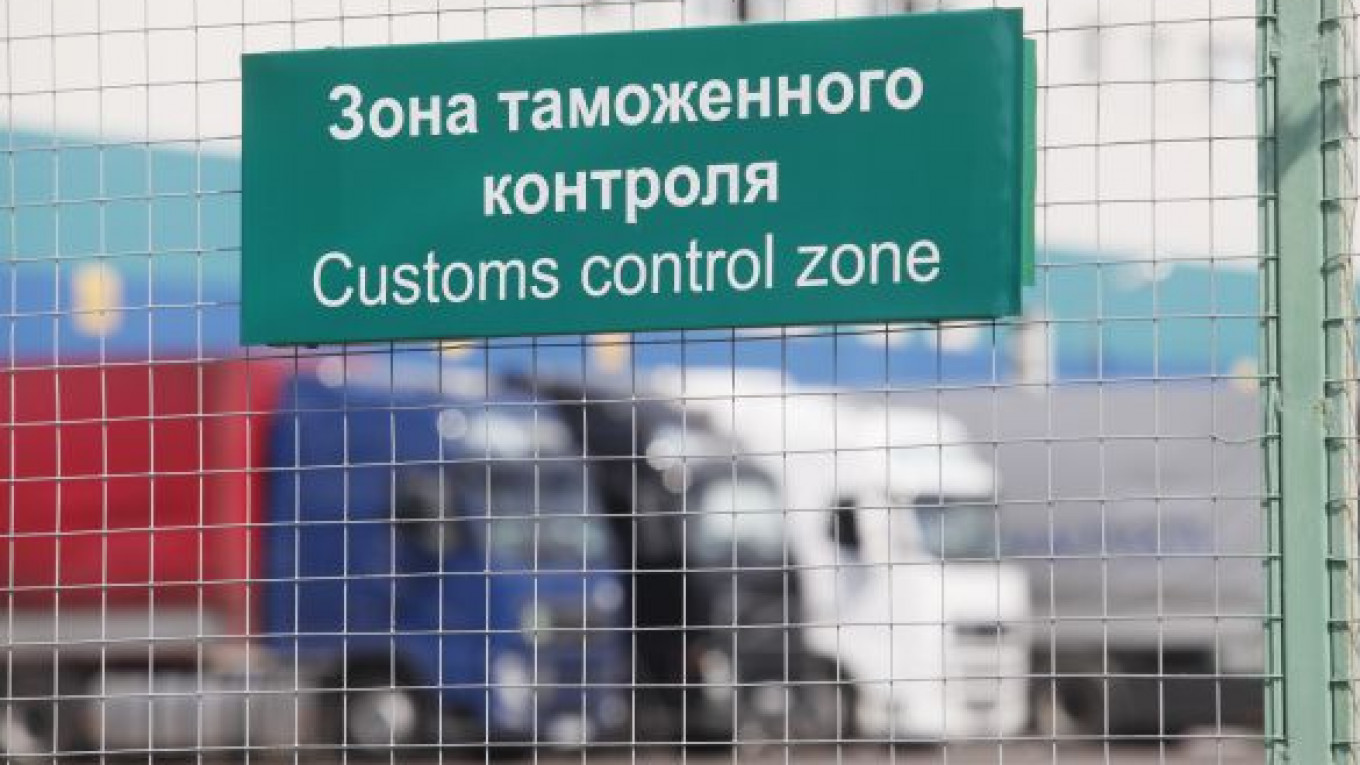A working group of the Strategic Initiatives Agency has developed a road map to improve customs procedures in the country in an effort to improve the investment climate.
The plan is in line with Prime Minister Vladimir Putin's statement to the State Duma on April 11 that the government will take 100 steps to increase Russia's Doing Business rating by the World Bank. The stated goal is to move from 120th position to 20th place in the rating by 2020.
The proposal, drafted jointly by businessmen, experts and officials, foresees a complete overhaul of the customs bureaucracy and its approach to dealing with imports and exports.
The establishment of the value and country of origin of goods, tariff calculation and payment should be made after customs clearance has taken place. Suppliers should provide a bank guarantee, contractual guarantee or cash deposit. Tariff calculation should be made and payments completed within 14 days of clearance.
Currently, freight stays at customs until all documents are collected, tariffs calculated and payments made, said Marina Lyakisheva of the DLA Piper law firm. This model was developed in the 1990s and is hopelessly outdated. Even electronic declarations don't help. "Electronic declarations fly, but still the freight sits," she said.
The World Bank estimates that on average, goods successfully crossing the border into Russia need 36 days and 10 documents, and the cost of bringing in a standard container is $1,800. This puts the country in 160th place out of 183 in the category of cross-border trade of the Doing Business rating. The government has set a goal of moving up to 19th place in this category by reducing the number of documents required to 4, the time period to 7 days and the cost by half. The road map promises to cut actual customs-processing time to two hours from the moment the goods or documents are presented.
One member of the working group said that so far customs authorities have not shown much enthusiasm for the concept. But supporters say it will have benefits to all sides, including improving revenue collection while reducing corruption and money laundering.
First Deputy Prime Minister Igor Shuvalov is a key supporter. "We don't have time to lose," he said. "The need to attract capital is greater than the risks involved."
An oversight committee of the Strategic Initiatives Agency will review the road map on May 3.
A Message from The Moscow Times:
Dear readers,
We are facing unprecedented challenges. Russia's Prosecutor General's Office has designated The Moscow Times as an "undesirable" organization, criminalizing our work and putting our staff at risk of prosecution. This follows our earlier unjust labeling as a "foreign agent."
These actions are direct attempts to silence independent journalism in Russia. The authorities claim our work "discredits the decisions of the Russian leadership." We see things differently: we strive to provide accurate, unbiased reporting on Russia.
We, the journalists of The Moscow Times, refuse to be silenced. But to continue our work, we need your help.
Your support, no matter how small, makes a world of difference. If you can, please support us monthly starting from just $2. It's quick to set up, and every contribution makes a significant impact.
By supporting The Moscow Times, you're defending open, independent journalism in the face of repression. Thank you for standing with us.
Remind me later.






